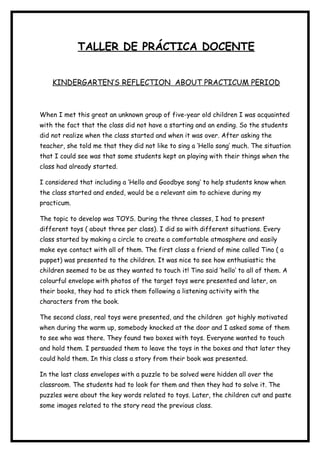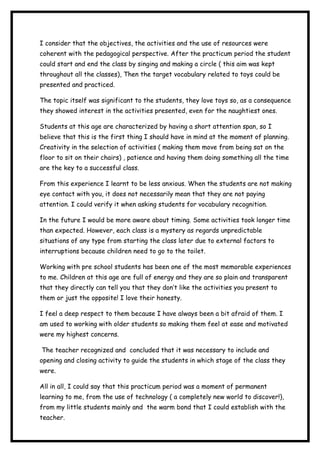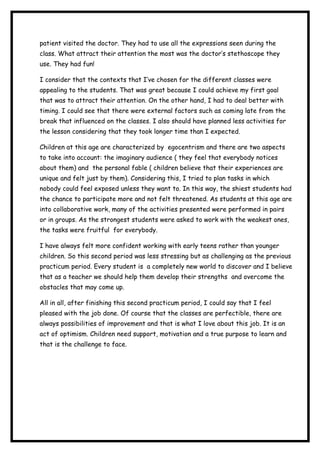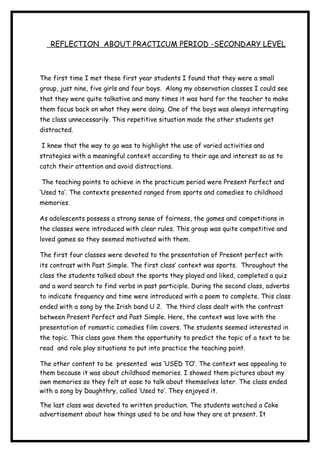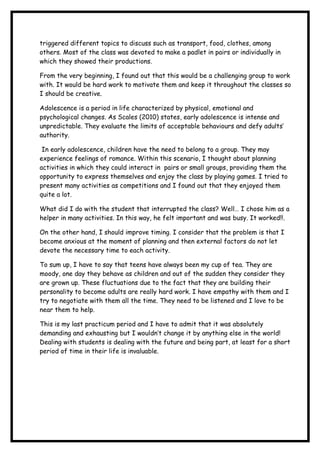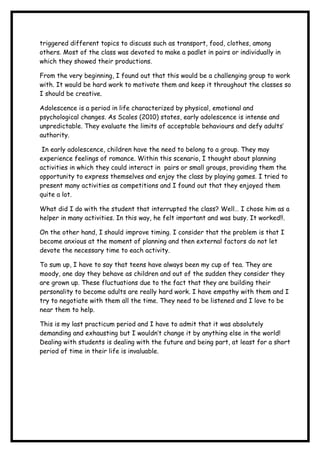The document summarizes the author's reflections from different practicum periods working with students of various ages and levels. For the kindergarten period, the author realized the need to include a greeting and closing song to help students understand class structure. Various engaging activities were used to teach about toys. For the primary level, appealing contexts like health, sports, and illnesses were used to teach modal verbs and keep students focused. At the secondary level, varied activities and meaningful contexts related to students' interests were used to present grammar points and avoid distractions. Competitions with clear rules engaged the competitive students. Overall, the author learned about using different strategies to suit different ages and maintain student attention and motivation.
